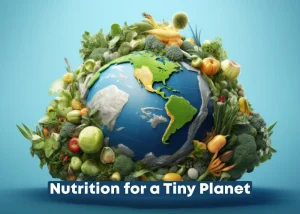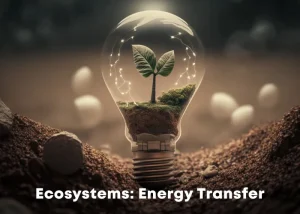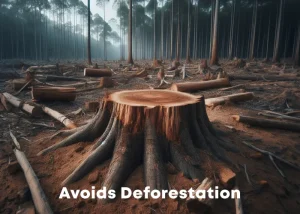The advantages of a vegetarian diet for ethics, sustainability of the environment, and health are frequently praised. The energy efficiency of a vegetarian diet is one of its less well-known benefits. In food production, energy efficiency refers to the energy used for production, processing, and delivery to the final consumer. Generally, a vegetarian diet uses less energy than a diet that includes meat, making it a more sustainable option. Why, though, is it the case?
This blog will examine the benefits of a vegetarian diet for the environment and why a vegetarian diet is more energy efficient.
Is Being a Vegetarian More Energy-Efficient?
why a vegetarian diet is more energy efficient! There are a variety of reasons why people choose to become vegetarians. One popular one is the desire to avoid eating meat because of the belief that it is cruel to raise, care for, and then kill animals for food. Many disagree with this viewpoint because it is purely personal, primarily if the meat is raised ethically, like on an organic farm.
Some mention the advantages of vegetarianism for health. A healthy vegetarian diet has several benefits because it is typically low in processed foods, high in fiber, and low in saturated fats. However, the health benefits of cutting out meat and substituting processed foods, ready-made meals, and cheese will probably be small, and this kind of diet might even be more detrimental than a typical Mediterranean diet that contains some fish and meat.
Using Less Energy and Eating Only Vegetables
Energy efficiency is another strong reason for switching from eating meat and fish with vegetables, fruit, grains, and cereals to exclusively consuming foods directly produced from plants. It is common knowledge that feeding animals solely grass will not suffice to raise them. Grains are provided to animals as supplements when they are produced for beef, pig, or lamb. This is necessary to enhance their feed. The crops needed to make this concentrate, which can provide a good combination of nutrients, including proteins, carbs, vitamins, minerals, and lipids to help the animal gain weight quickly, must originate from someplace. A farmer raising cattle or other meats may only sustain the required profit levels to earn a good living by raising animals over a very short period.
Plants absorb solar energy and use it to create stems, leaves, and tubers. This energy must then be processed and fed to farm animals. Before they can be used as food, they must continue growing and gaining weight. It would be significantly more energy-efficient if humans consumed the plant crops to feed the animals.
Nutrition for a Tiny Planet

A writer named Frances Moore Lappe originally proposed these ideas in her 1970s book Diet for a Small Planet. It became a popular seller and explained why cutting off meat was a terrific way to live more sustainably. At the time, this was an uncommon idea that has grown essential to how we live in the twenty-first century.
The book’s main takeaways were that if people adopted a vegetarian diet, land could be managed far more effectively and efficiently, and starvation could be avoided for a large portion of the global population.
The Environmental Needs of Today
Since then, a lot has changed due to the environmental demands brought about by the realisation that excessive greenhouse gas emissions from human activity are causing climate change. There’s no more excellent justification for vegetarianism than that consuming meat from less intensively farmed sources can harness solar energy more effectively and avoid wasting it on the energy required to package, process, and sometimes even ship meat over great distances.
Water is also saved when crops are grown for human consumption. While we may believe that we are all contributing to the cause by switching to showers from baths and shutting off the water when we brush our teeth, these actions are insignificant compared to the water savings resulting from a vegetarian diet. For instance, the water you would save if you resolved to forgo all showers and baths for a year would only be the same as what would be needed to create 0.5 kilogrammes of beef or enough to cook enough lasagne for four people.
Trophic Pyramids and Levels
Biologists see these units as “trophic levels” in ecological pyramids. A plant’s or animal’s position in the food chain, or what it consumes and what eats it, is known as its trophic level. Grass, for example, is one of the lowest-level plants that receives its energy straight from the sun. Herbivores, like grass-eating rabbits, inhabit the next stratum. Carnivores that consume creatures from lower trophic levels inhabit the upper levels. You may say that a level “rests” on the one below because every level receives energy from that level. Because of this, the pyramid is a handy tool for simplifying complex ecosystems.
Ecosystems: Energy Transfer

According to the Annenberg Learner website, up to 90% of the energy that enters one trophic level of the food chain. Is lost before the remaining 10% is transferred to the next. It makes sense that an animal only transfers a small portion of its energy to the following species it feeds because all organisms need energy to operate their biological processes (some of which are lost to space as heat).
Control Your Weight
Eating vegetarianism is frequently linked to weight loss. A vegetarian diet reduces fat and empty calories, improving weight control. Therefore, if you’re attempting to maintain or achieve a healthy weight, a plant-based diet could help you succeed!
Greater Efficiency in the Use of Land
A key component of food production is land utilisation and vegetarian diets make better use of the land:
Greater Yield per Acre:
Plants provide more edible food per acre than animal husbandry, including grains, vegetables, and legumes. For instance, an acre of land used for vegetable farming . Can yield significantly more calories and nutrients than the amount used for cattle farming. Because of this effective land use, producing one food unit requires less energy.
Avoids Deforestation:

Growing cattle and other meat-producing animals frequently results in clearing forests to make room for pasture or feed crops. Deforestation contributes to climate change by releasing stored carbon dioxide into the atmosphere and destroying essential ecosystems.
In summary
Because a vegetarian diet uses less energy. produces fewer greenhouse gas emissions, has less energy-intensive operations. And uses more land and water efficiently. it is more energy-efficient. People can help create a more sustainable food system. that uses resources wisely, saves energy. and safeguards the environment by adopting a vegetarian diet.
Even a tiny amount of vegetarianism can make a big difference in environmental sustainability and energy conservation. Every action counts, whether you want to adopt a plant-based diet entirely. Or increase the number of plant-based meals in your diet.
